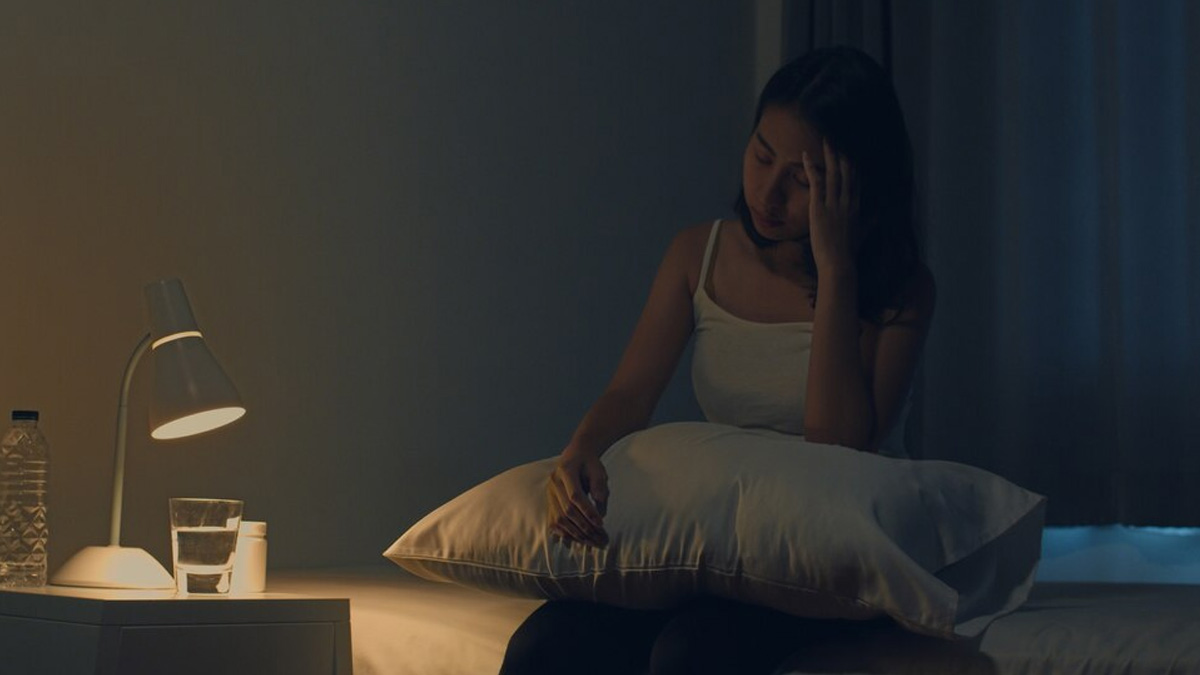Waking up in the middle of the night with a racing heart, sweaty palms, and overwhelming fear is a reality for many dealing with midnight anxiety attacks. This sudden rush of anxiety can disrupt sleep, impact mental health, and leave individuals feeling drained the following day. Midnight anxiety, often tied to nocturnal panic attacks, can be triggered by stress, lifestyle habits, and even subconscious thoughts. Here’s how you can effectively manage these anxiety episodes and restore peace to your nights.
1. Understand the Root Cause
Midnight anxiety attacks are more common than you might think. A study published in the Journal of Anxiety Disorders reveals that nearly 10% of adults experience nocturnal panic attacks at least once in their lives. Understanding the triggers behind these episodes is crucial for managing them. Factors like high stress, poor sleep hygiene, and existing anxiety disorders can exacerbate the condition. Identifying what’s causing the anxiety, whether it’s work-related stress, relationship issues, or financial pressure, can provide a pathway to addressing it. Journaling before bed is a simple yet effective tool for identifying your stressors. By noting down the worries of the day, you can ease the mental load before going to sleep.
2. Regulate Your Breathing
Anxiety attacks often trigger a flight-or-fight response, which leads to rapid, shallow breathing. This can worsen symptoms like dizziness and chest tightness. Focusing on deep, controlled breathing helps your body return to a state of calm. Diaphragmatic breathing, also known as belly breathing, is particularly useful.
How to Practice:
- Inhale slowly through your nose for a count of four.
- Hold your breath for seven seconds.
- Exhale gently through your mouth for a count of eight. Repeating this 4-7-8 breathing technique during an anxiety attack helps regulate oxygen flow, slowing your heart rate and calming your mind.
A study published in Behavior Research and Therapy supports the use of breathing exercises for managing anxiety, noting significant improvements in individuals who practiced controlled breathing regularly.
Also read: How To Use Your Five Senses To Combat Stress And Anxiety
3. Practice Mindfulness and Meditation

Mindfulness exercises can be lifesaving tools when combating midnight anxiety. Mindfulness involves grounding yourself in the present moment, which prevents anxious thoughts from spiraling out of control. Meditation, which incorporates mindfulness, is a long-term strategy that reduces anxiety levels over time.
Research published in JAMA Internal Medicine shows that mindful meditation significantly reduces anxiety symptoms and improves sleep quality. Practicing a few minutes of mindfulness before bed or during an anxiety attack can calm both body and mind. Focus on sensations—how the bed feels, the sound of your breathing, or even the warmth of the blanket.
Quick Grounding Exercise:
Sit up in bed and name five things you can see, four things you can feel, three things you can hear, two things you can smell, and one thing you can taste. This technique diverts your attention from panic and refocuses on the present moment.
4. Create a Sleep-Friendly Environment

Often, midnight anxiety can stem from poor sleep hygiene. A conducive sleep environment can go a long way in preventing these attacks. Keep your bedroom cool, quiet, and dark. Avoid screen time an hour before bed, as blue light from phones and laptops interferes with melatonin production, making it harder to fall asleep and stay asleep.
Cognitive Behavioral Therapy for Insomnia (CBT-I) has proven highly effective in managing anxiety and sleep disturbances. According to research in the Annals of Internal Medicine, CBT-I helps individuals address anxiety triggers while promoting better sleep hygiene.
Also read: How Can Scalp Massage Help You Reduce Anxiety And Stress?
5. Limit Stimulants and Heavy Meals Before Bed

Caffeine, sugar, and even alcohol can interfere with your nervous system, making you more prone to anxiety attacks at night. Similarly, eating heavy meals too close to bedtime can disrupt digestion, leading to discomfort and restlessness.
Stick to light, easy-to-digest snacks like a banana or a small bowl of oatmeal if you need a bedtime snack. Foods rich in magnesium, like almonds or dark chocolate, also help relax muscles and promote a sense of calm.
Conclusion
Managing midnight anxiety attacks requires a multi-faceted approach. From controlled breathing and mindfulness to improving sleep hygiene and cutting back on stimulants, these strategies can help alleviate nighttime anxiety and improve sleep quality. By addressing the root cause of anxiety and adopting practical coping mechanisms, you can regain control and find relief from midnight panic episodes.
Also Read: World Mental Health Day 2024 Theme
